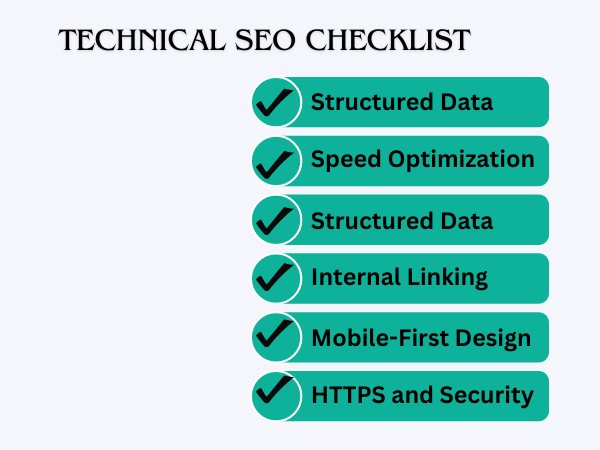Why SEO Matters in Kenya
In Kenya, SEO is not just following global trends—it’s essential for gaining online visibility. With businesses competing for attention, SEO offers a way to stand out in the crowded market. However, what works for SEO on a global scale doesn’t always apply directly to Kenya. There are unique challenges like multiple languages, a mobile-first audience, and varying internet speeds. So how can businesses optimize their digital approach specifically for Kenya? Let’s explore.
Understanding the Kenyan Audience & Search Behavior
Kenya’s growing internet access is mainly due to its mobile-first population. The majority of internet users go online through their phones. This makes speed, accessibility, and mobile-friendly design key factors for SEO in Kenya. For Kenyan businesses, creating a 3-month SEO plan can lay the foundation for consistent, strategic growth in this competitive environment.
Kenyan Search Trends
Understanding local search behavior is critical. Here’s a closer look at key trends:
- Local searches Queries like “restaurants near me” are very common.
- Voice searches As smartphones become more widespread, voice searches are increasing, especially in urban areas.
- Mobile-first Fast and lightweight websites are essential.
- AI search interest in Kenya has surged by 270% in 2023, with people seeking knowledge on AI tools and career applications. Additionally, searches for digital skills and cybersecurity training have seen significant increases, reflecting a growing focus on career advancement and online safety.

1. Local SEO: Standing Out in the Kenyan Market
Local SEO allows Kenyan businesses to capture the attention of nearby customers. Optimizing for local search terms, creating location-specific pages, and managing your Google My Business (GMB) profile are crucial steps to improving visibility in local searches.
Key Local SEO Strategies:
- Optimize GMB: Ensure accurate business name, address, and phone number (NAP) information.
- Encourage Reviews: In Kenya, positive customer reviews build trust and improve rankings in local search results.
- Local Keywords: Focus on search phrases specific to your region (e.g., “best coffee shops in Nakuru”).
- Localized Pages: Create location-specific landing pages tailored to the cities or regions you serve.
2. Mobile-First Indexing: A Must for Kenyan Websites
In a country where internet access is mostly through mobile phones, your website’s mobile performance is a top priority. Google’s mobile-first indexing means the mobile version of your website is what matters most when it comes to SEO.
Mobile Optimization Tips:
- Responsive Design: Make sure your site adapts to different screen sizes.
- Fast Load Times: Slow internet speeds are common in rural areas, so optimizing for speed is critical. Compress images, use caching, and eliminate unnecessary scripts.
- User-Friendly Navigation: Design simple, intuitive menus and large, clickable buttons for a better mobile experience.
3. Optimizing for Voice Search
As voice assistants like Google Assistant gain popularity in Kenya, optimizing for voice search is becoming vital. Voice queries are typically more conversational than text searches, so your SEO strategy should reflect this shift.
Voice Search Optimization:
- Long-Tail Keywords: For example, instead of “Nairobi restaurants,” optimize for conversational phrases like “Where can I find the best restaurants in Nairobi?”
- Structured Data: Implement schema markup to help search engines understand the content better and position your site for voice search results.
4. Creating High-Quality, Local Content
In Kenya, relevant and localized content reigns supreme. To stand out, your content must address the specific challenges and needs of your Kenyan audience. Generic content won’t cut it.
Actionable Content Tips:
- Focus on Local SEO Issues: Write blog posts or guides that address local issues. For instance, a post titled “How to Choose the Best Trade School in Kenya” offers both value and SEO potential.
- Use Local Examples: Talk about businesses or individuals succeeding in Kenya’s unique market. This adds authenticity and relatability.
- Capitalize on Trends: Discuss how digital learning is revolutionizing education in Kenya, especially in rural areas.
5. On-Page SEO & Technical Consideration
While high-quality content draws readers, strong technical SEO ensures your site is easily navigable by both users and search engines.
Google Search Console: Monitoring your website’s performance with Google Search Console is essential for identifying indexing issues, understanding search traffic, and optimizing your content for relevant keywords in Kenya. Search Console also provides insights into mobile usability, helping you ensure that your site meets the needs of Kenya’s mobile-first audience.
Google Analytics: Using Google Analytics allows you to track user behavior and engagement on your website. This tool helps you understand how users interact with your content, which pages perform best, and where your traffic originates from. For businesses in Kenya, tracking local traffic, user devices, and bounce rates helps optimize the user experience and content strategy.
Technical SEO Checklist:

- Structured Data: Use structured data (especially for educational institutions and local businesses) to make it easier for search engines to understand your content.
- Optimized Metadata: Make sure your metadata includes localized keywords like “SEO in Kenya” or “Kenyan digital marketing trends.”
- Internal Linking: Use internal links strategically to improve navigation and guide users to other relevant parts of your site, such as blog posts or service pages.
- Page Speed Optimization: Given the varying internet speeds, especially in rural areas, page load time is critical. Use techniques like image compression, lazy loading, and code minification to ensure your site performs well across all devices.
- Mobile-First Design: Google’s mobile-first indexing means your site must be fully optimized for mobile. This includes responsive layouts, clean navigation, and mobile-friendly elements like touch-friendly buttons.
- HTTPS and Security: Trustworthiness is vital in a digital landscape, and securing your website with HTTPS increases credibility and boosts rankings.
6. Backlink Strategy for Kenyan Businesses
Building authority is essential for SEO, and one of the best ways to do this is through backlinks. But it’s important to focus on local backlinks to increase your visibility in Kenya.
Backlinking Strategies:
- Guest Posting: Reach out to popular Kenyan blogs or digital marketing websites and offer to write insightful posts in exchange for backlinks.
- Collaborate with Local Influencers: Partnering with local influencers who can link back to your site can boost your credibility and reach. Collaborating with local influencers or offering guest posts on popular Kenyan blogs can help, especially for niches like sports medicine SEO
Why Expertise & Trust Matter in Kenyan SEO
Google places increasing importance on Experience, Expertise, Authoritativeness, and Trustworthiness (E-E-A-T). Establishing yourself as a trusted expert in the Kenyan market is crucial.
Building Trust:
- Showcase Author Expertise: Display the credentials of those contributing to your content. Add an author bio explaining their expertise in SEO and digital marketing, especially in Kenya.
- Cite Credible Sources: Reference Kenyan market reports, mobile usage data, and local case studies to back your claims.
- Offer Real-Life Success Stories: Share testimonials or case studies from Kenyan businesses that improved their SEO strategies and saw tangible results.
Addressing Local Market Challenges
Kenya’s market presents unique challenges, such as language diversity (with English and Swahili as dominant languages) and limited access to high-speed internet in some areas. Your SEO strategy should adapt to these factors.
Overcoming Challenges:
- Language Considerations: Create content in both English and Swahili where possible, or at least consider Swahili in your keyword research.
- Lightweight Sites: For regions with slow internet speeds, build lighter, faster websites that load efficiently even with limited bandwidth.
